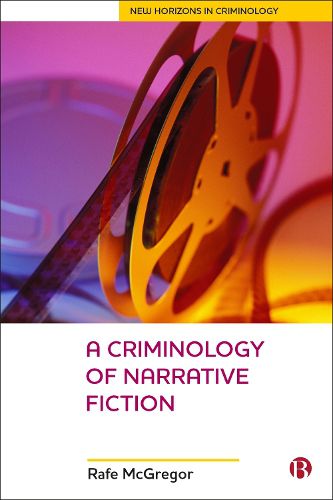Readings Newsletter
Become a Readings Member to make your shopping experience even easier.
Sign in or sign up for free!
You’re not far away from qualifying for FREE standard shipping within Australia
You’ve qualified for FREE standard shipping within Australia
The cart is loading…






Drawing on complex narratives across film, TV, novels and graphic novels, this authoritative critical analysis demonstrates the value of fictional narratives as a tool for understanding, explaining and reducing crime and social harm. McGregor establishes an original theory of the criminological value of fiction.
Criminology has been reluctant to embrace fictional narratives as a tool for understanding, explaining and reducing crime and social harm. In this philosophical enquiry, McGregor uses examples from films, television, novels and graphic novels to demonstrate the extensive criminological potential of fiction around the world. Building on previous studies of non-fiction narratives, the book is the first to explore the ways criminological fiction provides knowledge of the causes of crime and social harm. For academics, practitioners and students, this is an engaging and thought-provoking critical analysis that establishes a bold new theory of criminological fiction.
$9.00 standard shipping within Australia
FREE standard shipping within Australia for orders over $100.00
Express & International shipping calculated at checkout
Drawing on complex narratives across film, TV, novels and graphic novels, this authoritative critical analysis demonstrates the value of fictional narratives as a tool for understanding, explaining and reducing crime and social harm. McGregor establishes an original theory of the criminological value of fiction.
Criminology has been reluctant to embrace fictional narratives as a tool for understanding, explaining and reducing crime and social harm. In this philosophical enquiry, McGregor uses examples from films, television, novels and graphic novels to demonstrate the extensive criminological potential of fiction around the world. Building on previous studies of non-fiction narratives, the book is the first to explore the ways criminological fiction provides knowledge of the causes of crime and social harm. For academics, practitioners and students, this is an engaging and thought-provoking critical analysis that establishes a bold new theory of criminological fiction.